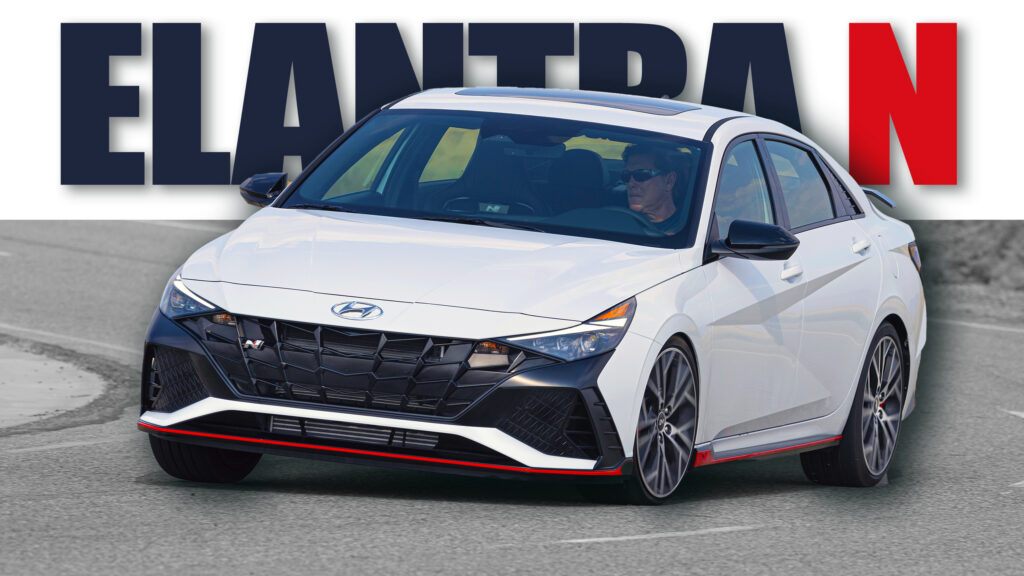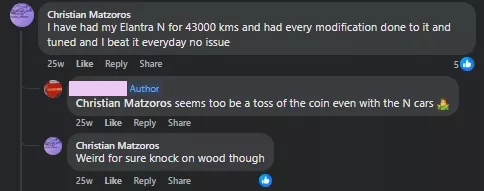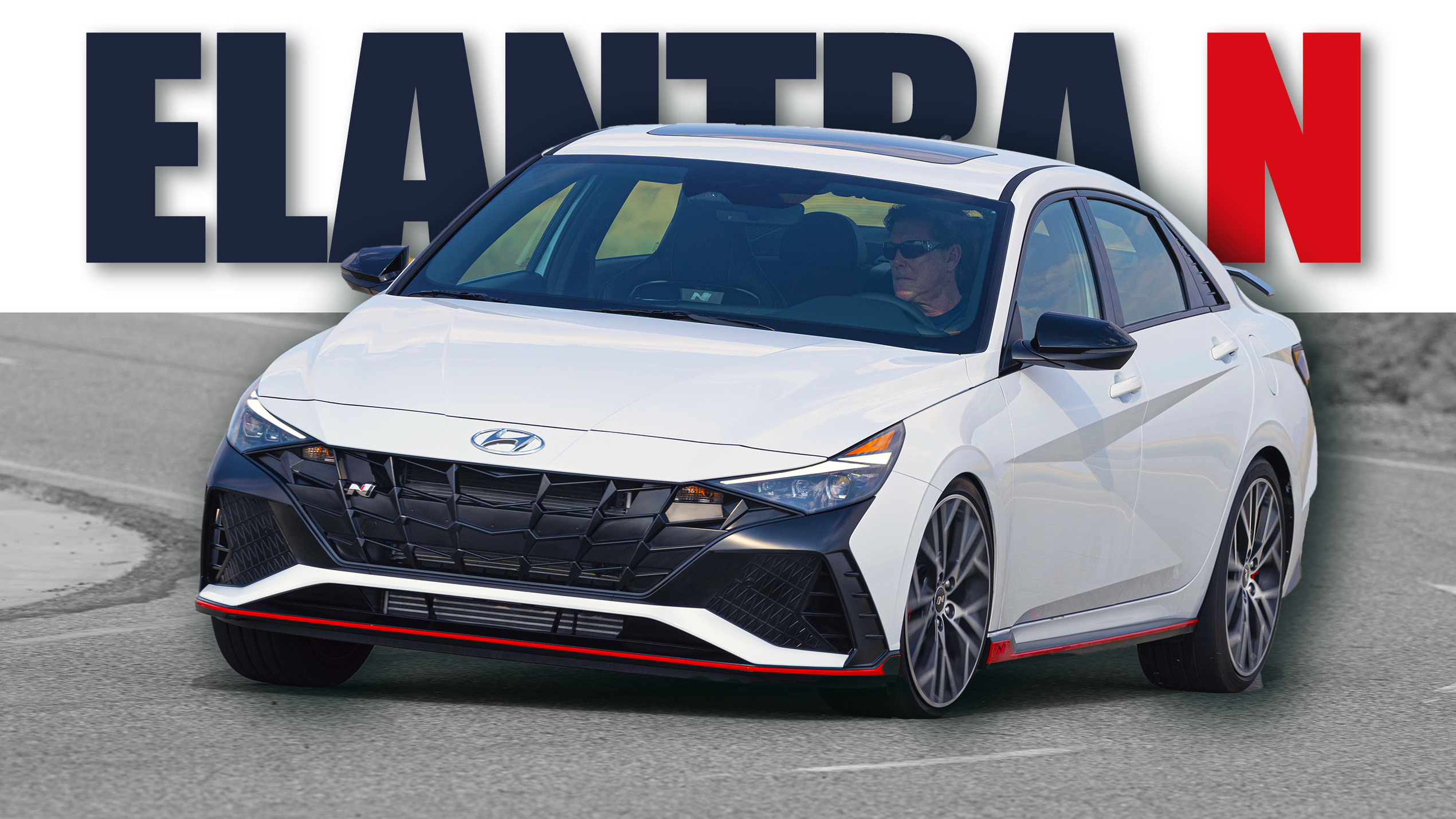“I beat it every day no issue,” the owner allegedly wrote online before his engine blew up
October 12, 2024 at 19:09

- A Canadian Elantra N owner claimed Hyundai refused to honor the warranty after his engine failed.
- Hyundai cited “over-revving” and potential misuse as reasons for denying the warranty claim.
- Newly surfaced posts suggest the Elantra N owner may have modified the car as well.
Cars are some of the most expensive things that people can and will purchase in a lifetime. Warranty coverage is in place to protect us against manufacturer defects. It provides a safety net for that huge purchase. What it’s not there for is to provide free reign to misuse or abuse a product. This seems to have been the issue with one 2022 Hyundai Elantra owner. Now, new details have emerged indicating the vehicle may have been modified as well.
The owner, Christian Matzoros, initially turned to Facebook on June 3, seemingly seeking help from the Elantra N community after his engine failed. In a now-deleted post, he asked, “Does anyone work at a Hyundai dealership and can warranty my Elantra N motor no problem [sic] they are giving me hard time I was a former employee. Ontario Canada (let’s work something out)”.
Related: Hyundai Denies $10K Warranty Repair For Elantra N, Blames Owner For Over-Revving
In our initial coverage, we reported that the dealer ultimately concluded the engine failure was due to over-revving. In other words, Hyundai used ECU data to determine that the driver had pushed the car beyond its intended operational limits. Though the spokesperson didn’t directly say it, their wording hinted at a “money shift”, which is what happens when a driver tries to shift into a higher gear (such as 4th) but accidentally selects a lower one (like 2nd), causing the engine’s RPMs to surge past safe levels.
“After reviewing the vehicle’s engine data, which was retrieved through the Engine Control Unit (ECU) – a system that monitors and records engine performance for diagnostic purposes – it was determined the engine experienced conditions exceeding its designed operational limits, resulting in significant mechanical failure,” a Hyundai Canada spokesman told CTV News at the time. “These findings point to excessive engine revving, which falls outside the coverage of the vehicle’s warranty due to improper use.”
Now, online posts from someone appearing to be Matzoros indicate the car may have also been tuned. Driving.ca found multiple instances, including a post on Facebook where one Christian Matzoros says “I have had my Elantra N for 43000 kms and had every modification done to it and tuned and I beat it everyday no issue.” That’s significant because Matzoros reported his engine failing at 46,000 km.

In another interesting finding from Driving.ca, a review for an ECU tuning device appears to be from the same person as well. “Absolutely worth while! Bought the ek1 mini with the extra tunes and it’s nothing but amazing! Daniel has help me to all the tunes and revisions if needed even late at nights! 10/10 would recommend this device and the tunes from N75!,” it says.
If these posts are indeed from Matzoros, they suggest the car may have been modified and tuned, which can void a vehicle’s warranty—depending on the specific terms. It’s unclear whether Hyundai was aware of these posts during the warranty claim process, but such admissions could bolster the automaker’s decision to deny the claim. However, it remains uncertain whether the modifications or tuning directly caused the engine failure, or if the denial was based solely on the over-revving data Hyundai retrieved from the ECU.

